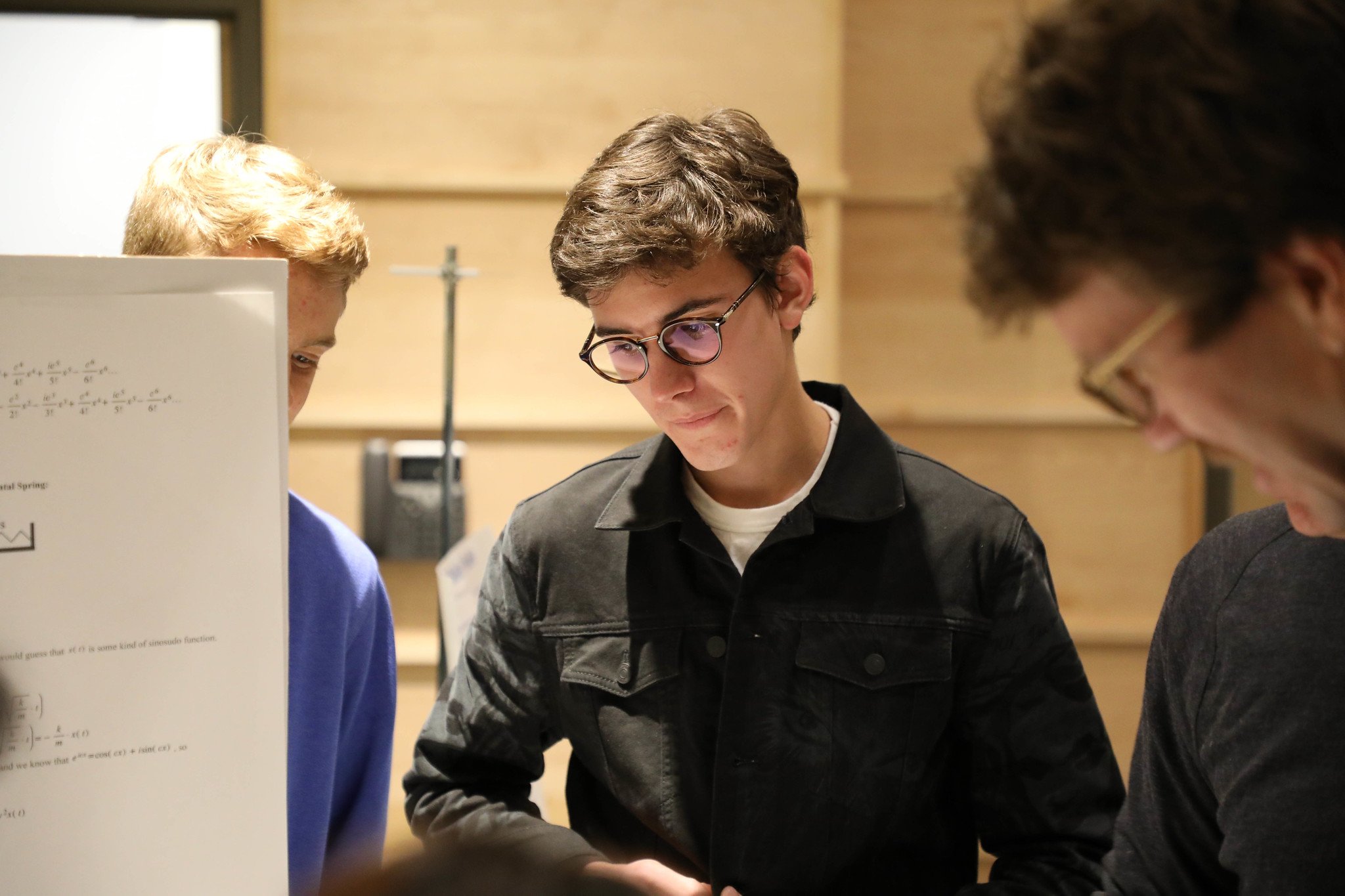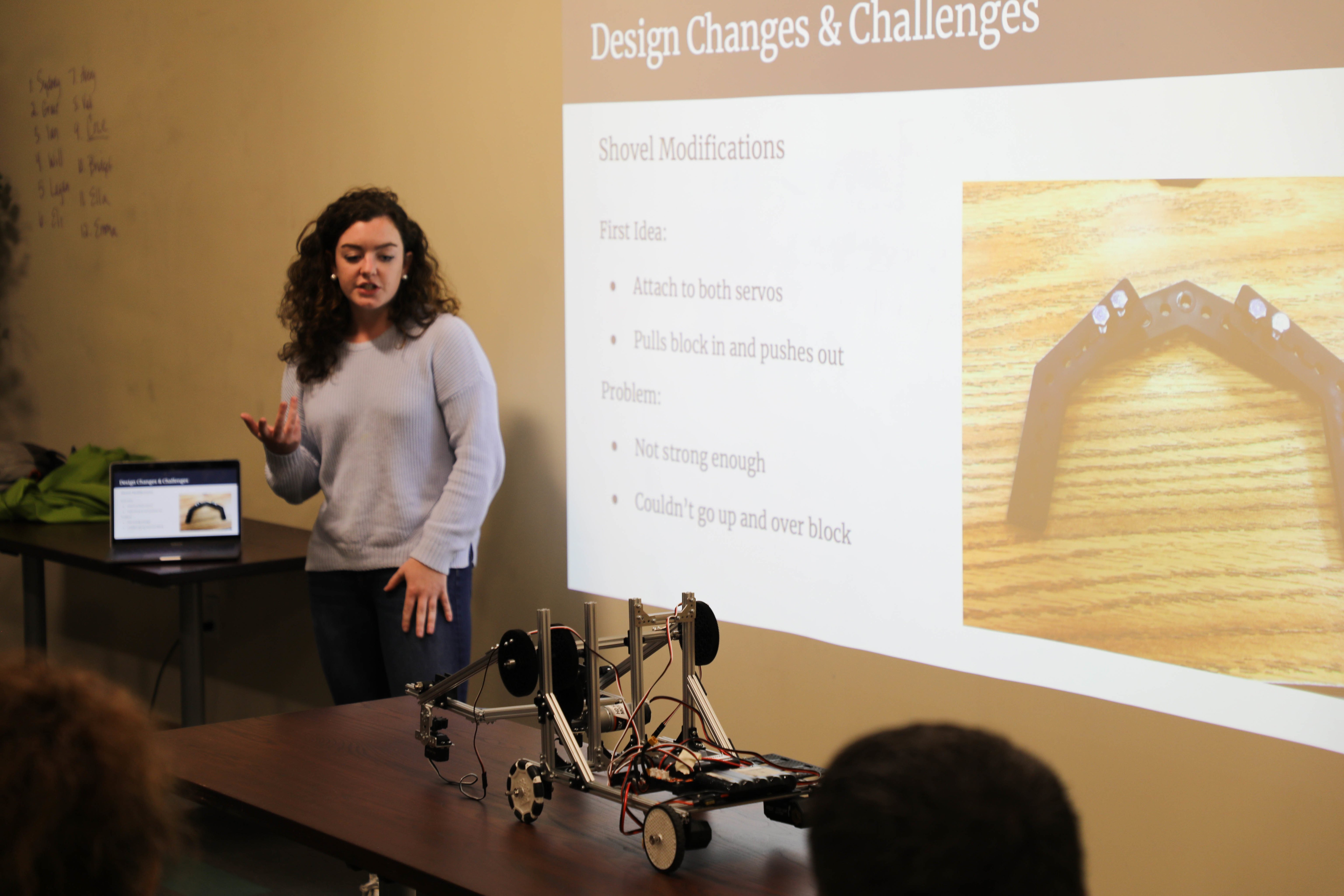At the heart of Proctor’s educational model is the belief adolescents learn most deeply when they engage hands-on with their learning. Five years ago, Proctor launched a biannual Innovation Night to elevate the great work happening in our classrooms. Each fall and spring, we gather as a community to not only celebrate the work of our students, but to learn about the important issues they are wrestling with in their classes.
One of Proctor’s greatest strengths lies in the simultaneous breadth and depth of our academic curriculum. Check any student’s schedule and you will see a mix of classes any liberal arts college would envy: social entrepreneurship, calculus, physics, conservation ecology, globalization, culture and conflict, engineering, the list goes on and on. As passions are identified, teachers opportunistically fan the early flames of inquiry. On Tuesday evening, students in Globalization, Conservation Ecology, AP Physics and AP Calculus, Culture and Conflict, Engineering, and Social Entrepreneurship shared a window into this inquiry process by presenting culminating projects in the new academic space in the Farrell Field House. Faculty, staff, parents, and students circulated throughout each classroom as students shared their research, discussed the design thinking process required in their robot design, and presented business plans.
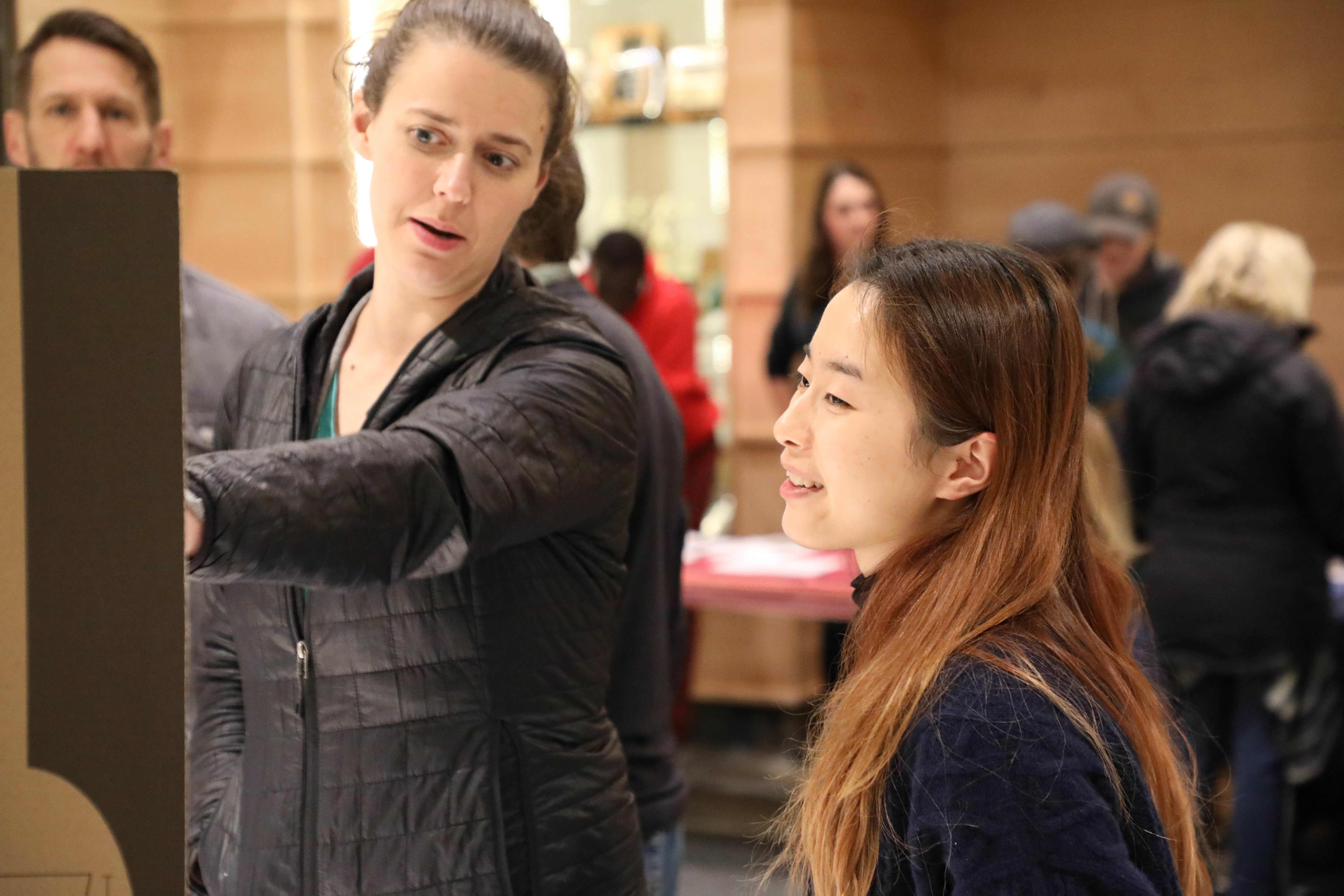
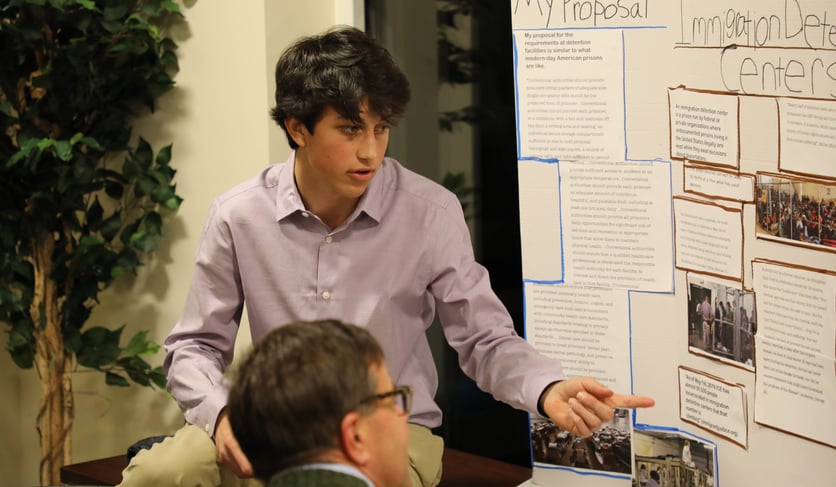
Perhaps the most striking component of the evening occurs through the one-on-one conversations between students and adults. These intimate discussions focus on the real learning that has taken place over the duration of the term, reminding us we are relational beings and it is through meaningful relationships that we can grow most as learners. While formal assessments like tests and papers are an essential piece of a high school education, how much more meaningful to a student's learning are deep, one-on-one conversations probing a topic or theme studied?
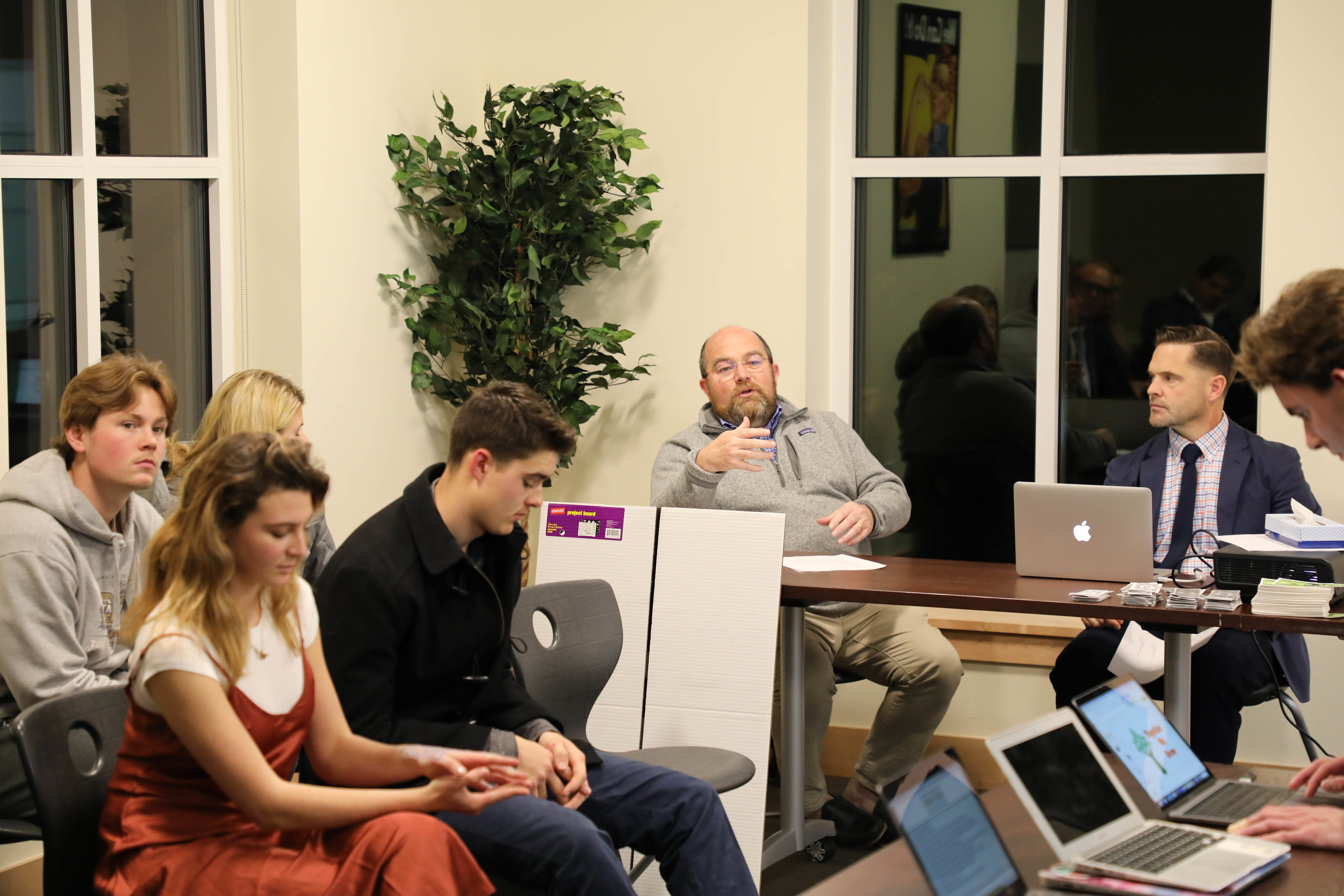
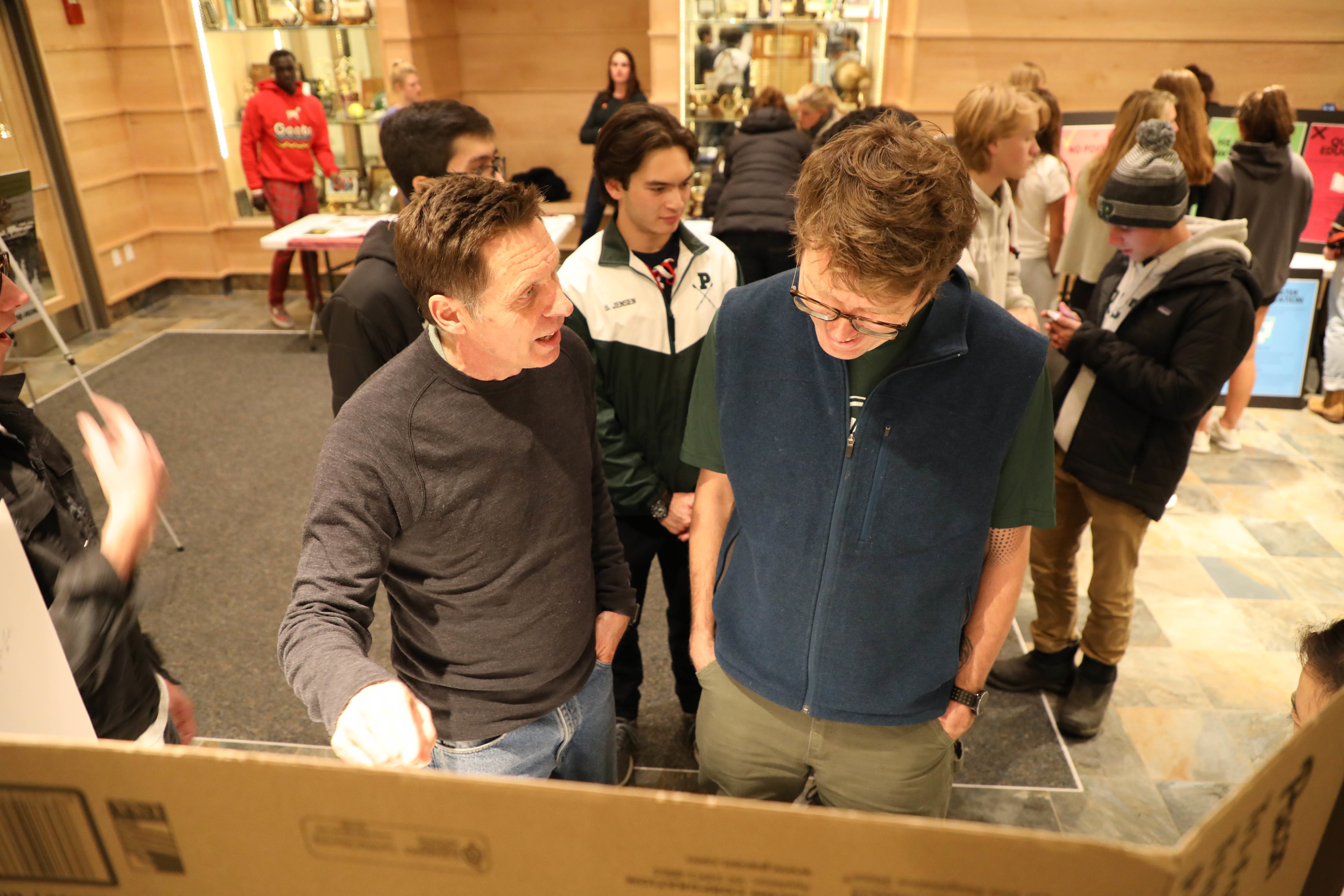
Layering engagement from parents, Board members, and other faculty, staff and their families into Innovation Night further elevates the expectations for students on these final assessments. The perspectives these voices bring, the questions they ask, and the life experiences they share provide incredibly rich feedback for our students, feedback that challenges their thinking in ways beyond that which a teacher alone can do.
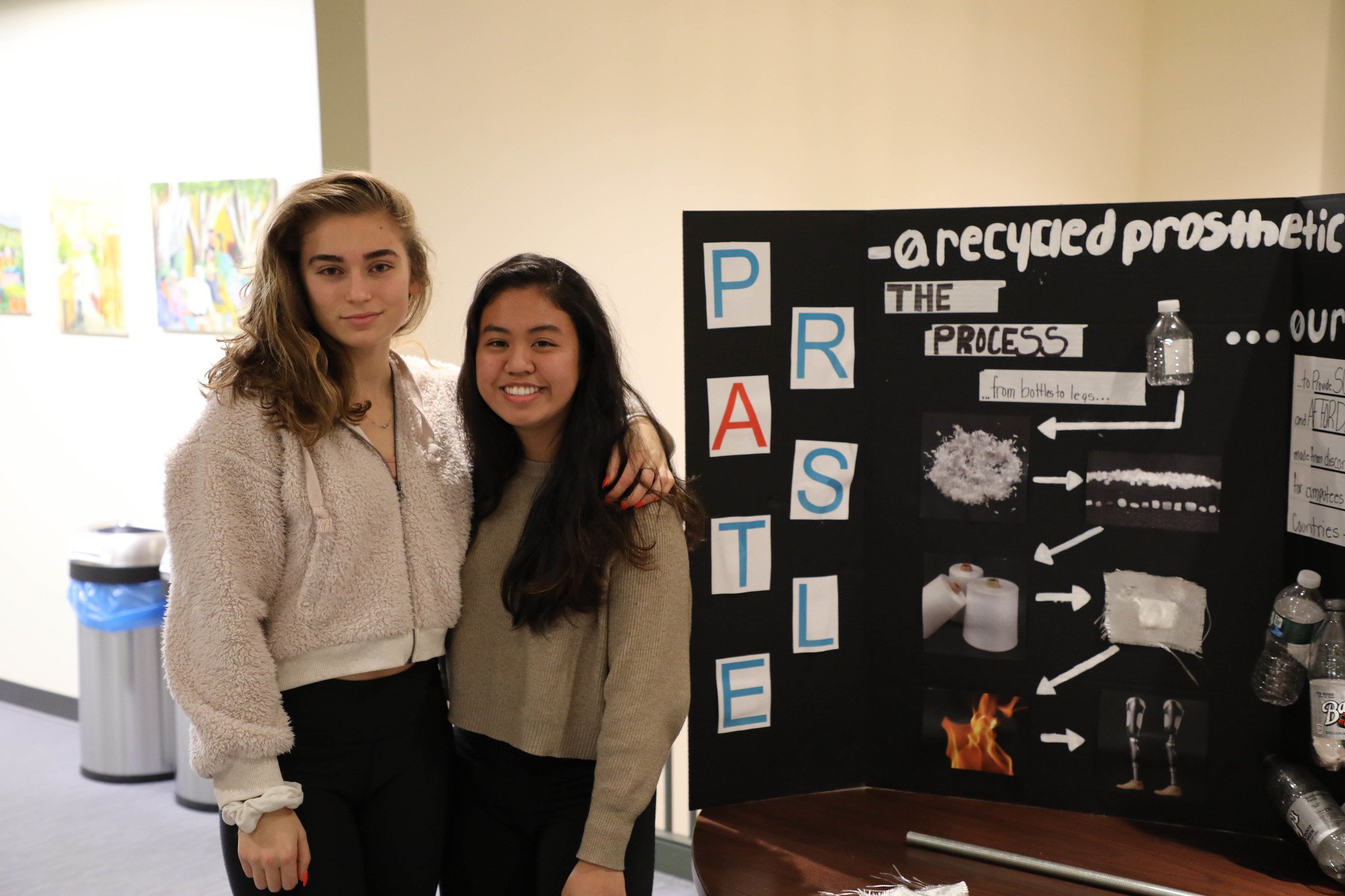
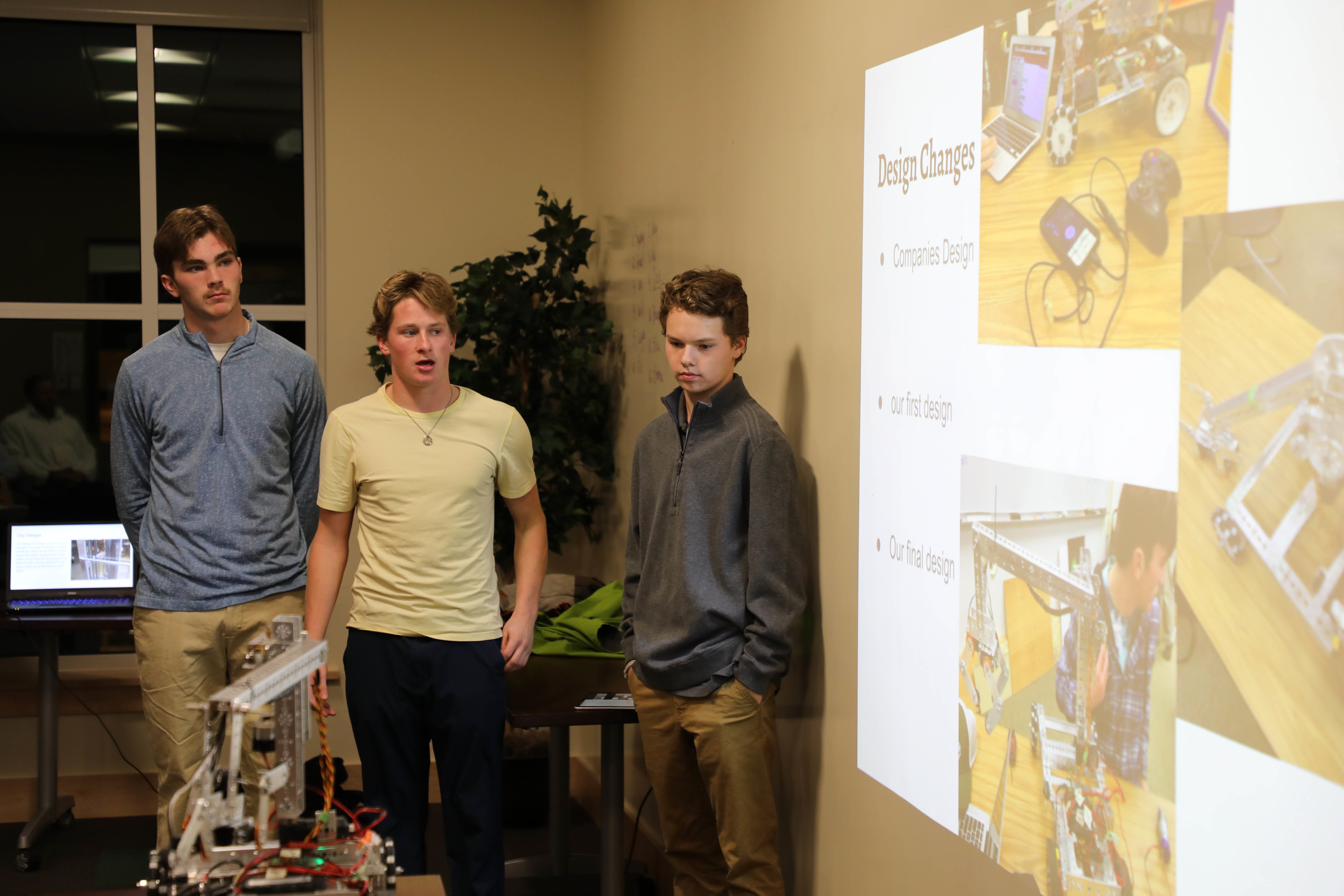
With such a broad range of topics and diverse pursuits, we are reminded that “innovation” is not a destination, but a journey of exploration. Tonight was a reminder of how curious, talented, and genuinely engaged our students as they pursue deeper learning. Thank you to all of the parents, faculty, staff, and students who joined us tonight in celebrating the creative, often messy, process of project based learning.
